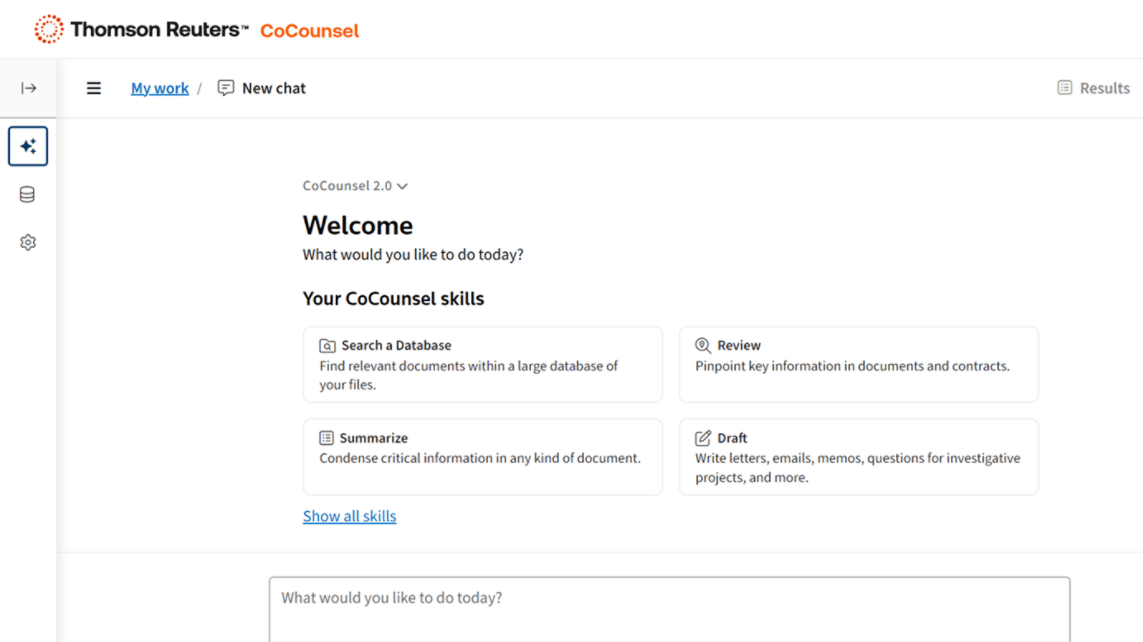How AI is redefining commercial real estate legal work
Highlights
- AI-powered legal tech is transforming the laborious process of drafting commercial real estate leases by enabling lawyers to quickly research, analyze, and compose complex documents.
- AI rapidly scans, interprets, and analyzes thousands of disparate data elements—from building codes to tax histories—from previously siloed sources, allowing lawyers to apply their expertise more efficiently.
- The adoption of AI streamlines workflows for greater speed, centralizes information to create a transparent knowledge base that survives employee turnover, and provides a robust understanding of lease portfolios for more informed negotiations.
By using artificial intelligence (AI) systems, real estate lawyers need less time to analyze and prepare these documents. They gain a more thorough, intuitive, and reliable means for researching, analyzing, composing, and proofing.
Jump to ↓
No longer start from square one
Changing tides in commercial real estate
The AI revolution in commercial real estate
AI for real estate document management
No longer start from square one
Here’s a scenario which a real estate lawyer may find all too familiar. You’ve spent a full week drafting, editing, reading, and rereading a lease that could be easily over fifty pages, if not over a hundred pages. re finally close to finishing an agreement that works for your client – and then something unexpected comes up.
This could be a market revaluation, an interest rate hike, or an unexpected tax bill. Or a current or potential renter makes demands that the property owner plans to accept or counter. You now have to scrap the lease and start from scratch, with new inputs to consider.
For a lawyer, this once meant saying goodbye to your weekend. Now, all it requires is for the lawyer to pull up a new custom template, run a survey of relevant databases, and enter any new applicable data. A new workable lease gets completed within hours.
Changing tides in commercial real estate
Commercial real estate has undergone major shifts over the past five years. Historically high interest rates are affecting lease terms, and the COVID-spurred move to remote work is no temporary trend—many workers will never return full-time to their offices. Companies are finding that holding expensive leases on downtown office space no longer makes sense, logistically or financially.
“Employers are beginning to appreciate that building giant facilities to warehouse their people is no longer necessary,” Richard Murphy, political economist and professor of accounting practice at the UK’s Sheffield University, told Reuters this summer .
Further, the trend of online retailers growing at the expense of their brick-and-mortar rivals shows no signs of slowing. All of this means trouble for commercial real estate owners. They may need to court prospective tenants with more flexible leases or offer more lessor-favorable conditions.
That’s why having a more robust understanding of terms and conditions in lease contracts is critical for commercial real estate owners, renters, and most of all their lawyers. The more knowledge you have, the more you’ll be able to precisely tailor leases, and at a quick pace.
The AI revolution in commercial real estate
Here’s where AI comes into play. One thing AI does well is to make order from (relative) chaos. Consider a single real-estate arrangement, like a medium-term lease of an office complex. These documents may contain hundreds, even thousands, of different data elements. Building codes, tax histories, debt obligations, environmental regulations. In the past, these elements resided in different silos, from online databases to filing cabinets stuffed full of usage agreements, tax bills, and more. Drafting or revising a lease meant that a lawyer had to wend their way through all of it.
Now AI platforms can scan, interpret, and analyze all relevant data within seconds, which allows even the most experienced lawyers to apply their expertise faster. Say that your firm has a retail client with thousands of store locations. Once all of its lease data is stored virtually, on an AI platform, the client can review the whole of its lease history thoroughly and quickly.
If the retailer wants to sign a new lease or renegotiate an existing one, its lawyers will run a data analysis and extract such information as the retailer’s most common lease terms, tax obligations, lessor obligations, and other factors. The retailer thus goes into negotiations with a more informed sense of its lease portfolio, and how the lease in question differs from the standard in any way. They’re able to make more informed decisions, such as whether to push a property owner for new terms.
Degrees of improvements
Other ways that AI can upgrade commercial real estate document workflow include:
Greater speed of analysis and assessment
AI-driven technology creates more streamlined processes . An office tenant can now determine, within minutes, what their options are for a particular lease. Can they expand or contract their space? Do they have the automatic right to renew, terminate, or sublease and, if not, what factors trigger or affect those rights?
Take lease abstracts, for example. In the past, many companies would hire third-party providers to manually input these abstracts into property management databases, a time-consuming process with some potential for error. The abstracts themselves were static documents that typically weren’t updated.
Greater centralizing and continuity of information
For real estate companies, having a central AI-managed database can standardize what had been, in part, an ad hoc business. In the past, a property manager was often someone who learned on the job and could have a personal, idiosyncratic method of working with tenants.
The problem for real estate owners was that when this manager either quit or retired, potentially decades’ worth of knowledge went out the door with them. Their replacement would inherit a database, a filing cabinet, and maybe some notebooks or Excel files. But they may have lacked essential context: important dates to note, tenant quirks, peculiarities of each lease.
Now imagine that a property manager, in the course of their workday, inputs all of this information into an AI platform that stores this data and automatically categorizes it. This creates a more transparent document management system, with automated date tracking features, for example. This way, a new property manager has a detailed grasp of all their company’s outstanding leases and won’t start their job in the dark.
AI for real estate document management
Commercial real estate is, at its root, a business of many intricate details. That’s why AI can help to make real estate document management a much smoother, more dynamic and more accurate process.











